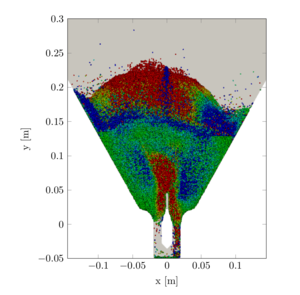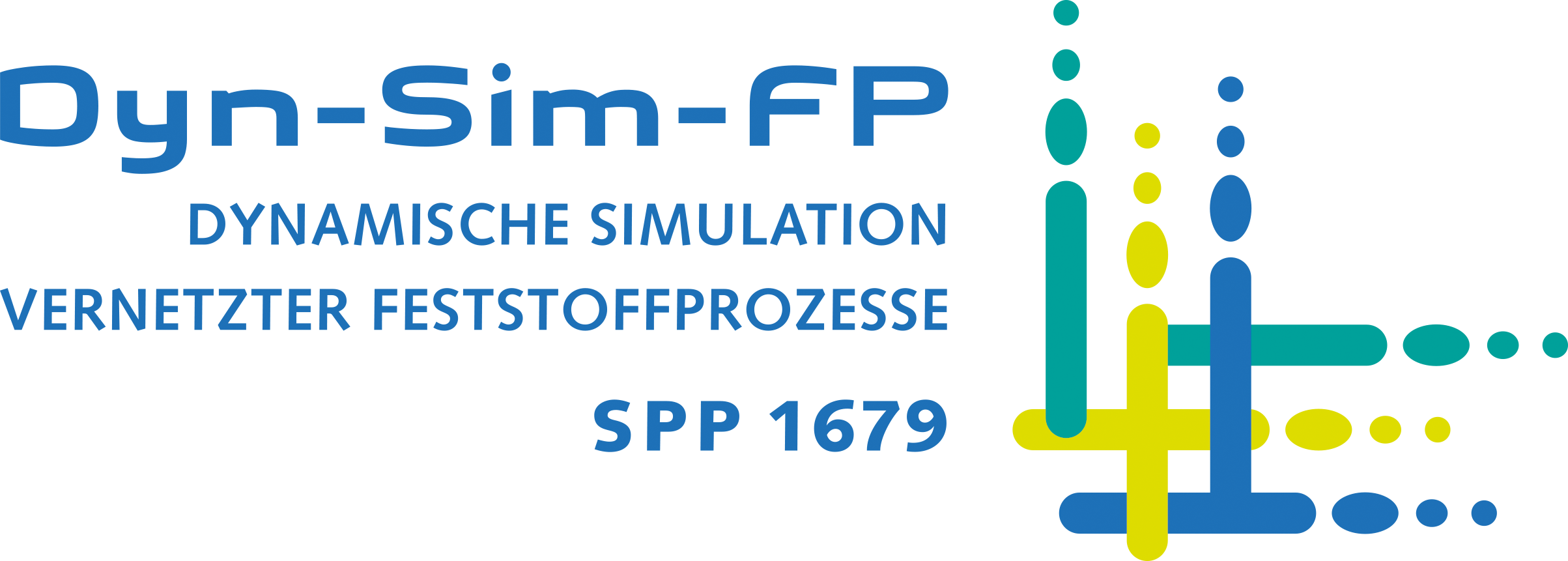Ankündigungen
Vortrag von Prof. Berend van Wachem zum Thema Euler-Lagrange Kopplungsstrategien
Prof. Berend van Wachem, Leiter des Lehrstuhls Mechanische Verfahrenstechnik an der Otto-von-Guericke-Universität Magdeburg, wird das SPE am 26. und 27. September besuchen. Als Experte im Bereich Mehrphasenströmung wird er einen Vortrag zum Thema "Consistent Euler-Lagrange approach for particulate flow modelling with arbitrary particle size/mesh resolution ratio" halten (Abstract).
Vortrag von Dr. Rachel Smith an der TUHH
Im Rahmen eines SPP-Kolloquiums wird Dr. Rachel Smith vom Department of Chemical and Biological Engineering der University of Sheffield am 21. November 2018 um 15:00 einen Vortrag zum Thema "Rate Processes in Particle and Powder Technology" halten (Abstract). Die Veranstaltung wird in Besprechungsraum unseres Instituts (Raum 2511, Gebäude K) stattfinden.
Interessenten können Sie sich an Herrn Buchholz (moritz.buchholz(at)tuhh.de) wenden.
Ihr SPE-Team
Vortrag von Prof. Jitendra Kumar an der TUHH
Am 19. Juni 2018 um 13:00 Uhr wird Prof. Jitendra Kumar vom Department of Mathematics des Indian Institute of Technology, Kharagpur im Rahmen eines SPP-Kolloquiums einen Vortrag zum Thema "Mathematical and Numerical Challenges in Particle Technology" halten (Abstract). Die Veranstaltung wird in den Räumlichkeiten unseres Instituts stattfinden, zu der wir herzlich einladen!
Bei Interesse an der Veranstaltung können Sie sich an Herrn Buchholz (moritz.buchholz(at)tuhh.de) wenden.
Ihr SPE-Team
Vortrag von Prof. Pirker an der TUHH

Hiermit möchte ich Sie auf den Vortrag von Prof. Stefan Pirker vom Department of Particulate Flow Modelling der Uni Linz (Österreich) aufmerksam machen, der im Rahmen der Vortragsreihe unseres SPP 1679 am 3. April um 14:00 Uhr an meinem Institut stattfinden wird.
Das Thema lautet:
"Can we bridge between recurrence CFD (rCFD) and process control?“
Abstract:
Recurrence CFD (rCFD) aims at an efficient representation of long-term processes (e.g. heating, chemical conversion) which slowly evolve on highly-dynamic pseudo-periodic flow fields. In such cases classical CFD simulations fail due to excess computational cost associated with the resolution of the governing flow fields.
In the framework of rCFD, short-term full CFD simulation deliver recurrence databases of the governing flow at different operating conditions. Based on statistical reasoning, rCFD then exploits these databases in order to either develop (i) generic flow fields or (ii) generic transport fields, which subsequently serve as basis for the long-term process under consideration. We further present an interpolation methodology for the representation of unsteadily varying operating conditions (i.e. between existing recurrence databases).
In applying rCFD to a set of single-phase and multiphase flows, we experienced a computational speed-up of two (flow based rCFD) to four (transport based rCFD) orders of magnitude. In many cases this dramatic speed-up allows for faster-than-realtime simulations, although we didn’t reduce the resolution of the original full CFD simulation.
Finally, we explore the possibility of incorporating such real-time rCFD simulations into process monitoring and control.
Zur Info über Herrn Pirker (CV):
Prof. Pirker ist der Doktorvater von Herrn Kloss und Herrn Goniva, die die Firma DCS Computing als Geschäftsführer leiten, und beschäftigt sich seit einigen Jahren mit der rCFD-Methode.
Falls Sie Interesse an der Veranstaltung haben, melden Sie sich gerne bei mir.
Mit freundlichen Grüßen
Stefan Heinrich


